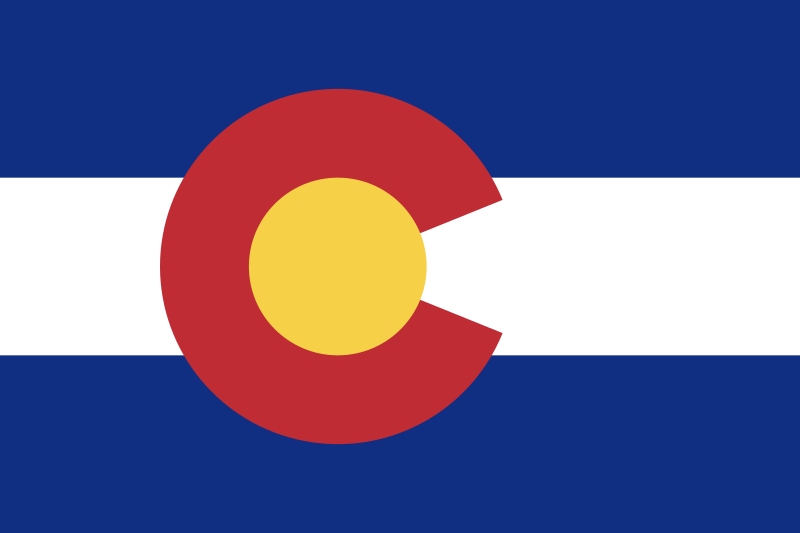Colorado Governor Jared Polis (D) signed SB 210 into law on June 6, 2024. The omnibus elections bill makes changes to several areas of election law, including adding provisions to state law that would make it more difficult to adopt ranked-choice voting (RCV) in statewide elections.
The bill lowers the age for voter preregistration from 16 to 15 years old, eliminates the ability for 17 year-olds to vote in primary elections if they will be 18 at the time of the general election, and makes various other technical changes that supporters of the bill have framed as a clean up of state election laws. For a full summary of changes made by the bill, see here.
The final version of the bill passed the Colorado House of Representatives 53-9 on May 6, and passed the state Senate 28-6 on the same day. In both chambers, all Democrats voted “yea," while Republicans split evenly. Nine voted “yea” and nine voted “no” in the lower chamber, and six voted “yea” and six voted “no” in the upper chamber.
Rep. Emily Sirota (D), one of the bill’s sponsors, introduced the portion of the bill related to RCV as an amendment on the Sunday before the end of the legislature’s session. The amendment to the now enacted bill requires that 12 counties of varying sizes and demographic profiles adopt and use RCV before it can be used for statewide elections. In some instances, there are requirements related to the number of voters “who speak English less than very well.”
On the RCV portion of the bill, Sirota said: “This amendment was worked out with several of our (county) clerks to ensure that as new voting methods are implemented in different types of elections we have a good amount of data to analyze to ensure we’re not undermining Coloradans’ confidence in our elections and that voters understand their ballots.”
Colorado voters may vote on a ballot initiative this November that would establish a top-four open primary system and ranked-choice voting for state executive, state legislative, and congressional offices. As of June 10, the initiative has not qualified for the ballot.
Polis signed SB 210 into law, saying that the bill contained provisions to strengthen trust and security in elections, but said he did not approve of the portions related to RCV. He said, “The bipartisan bill contains important and non-controversial provisions to strengthen Colorado’s already gold-standard election system and to safeguard future elections from those who seek to undermine our democracy.”
He said the amendment on RCV added to the bill was unconstitutional, and that it would not necessarily prevent the adoption of RCV if voters approve the ballot initiative in November.
“I do not support language added in the second chamber in the final days of the session designed to frustrate the will of the voters should Colorado voters approve ranked choice voting (RCV) and all candidate primaries on the upcoming November ballot,” he said.
If the initiative is approved in November, he said, “I will issue an executive order, in consultation with the Secretary of State, to convene local election officials, voting rights organizations, legislators from both parties, and initiative proponents to map out a process for implementing this initiative as soon as practicable with my commitment to full implementation by the 2028 election cycle.”
Colorado Voters First and Ken Thiry, a businessman, political activist, and philanthropist, are supporting the initiative. Thiry said, "I think this is about bringing voice and choice back to the people. Whether they’re Democrats, Republicans or independents, they need their voice and choice back." Several Republicans, including U.S. Rep. Lauren Boebert (R) and Colorado Republican Party chairman and former state Rep. Dave Williams (R) oppose the initiative. Boebert said, “Ranked choice voting is a scheme launched by well-moneyed interests who are only concerned with their own power and not giving Coloradans a choice at the ballot box."
Voters in at least four states will decide on ballot measures related to RCV in November. In Alaska, voters will consider repealing the use of RCV for statewide and legislative elections, while in Missouri voters will decide whether to ban RCV which is not currently in use in the state. In Nevada and Oregon voters will decide whether to adopt RCV for certain elections.
Elsewhere this year, five states, Alabama, Mississippi, Kentucky, Oklahoma, and Louisiana, have banned RCV through state legislation. In total, 10 states ban the use of RCV for elections. All states that have laws banning RCV have adopted them beginning in 2021 legislative sessions. All 10 have adopted bans with a Republican controlled legislature.
Keep reading: Ranked-choice voting (RCV)



